- Let Humanities Light Up Medicine: The National Medical Humanities Education Alliance for Regional Medical Colleges and Universities Established
- Author:Zheng Yiling, Press Center Date:November 14, 2022

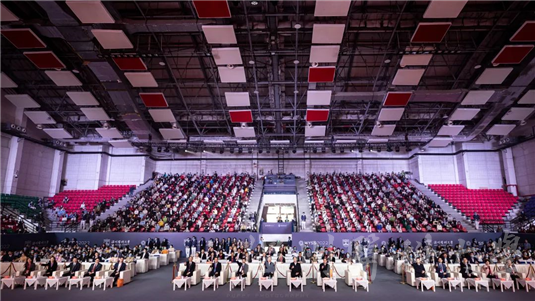
To thoroughly study and implement the guiding principles of the 20th National Congress of the Communist Party of China, improve the quality of medical talent training, and further promote the in-depth cooperation between regional medical schools in the field of medical humanities education, the Inaugural Meeting of the National Medical Humanities Education Alliance for Regional Medical Colleges and Universities and the International Forum on Medicine and Humanities were held in Wenzhou Medical University on November 5.
Du Yubo, former deputy secretary of the Leading Party Members’ Group and vice minister of the Ministry of Education, and president of the China Association of Higher Education, Xie Zhiyuan, secretary of the Leading Party Members’ Group of Zhejiang Association for Science and Technology, Yu Yongming, deputy director-general of the Zhejiang Provincial Department of Education, and Zhang Jian, member of the Standing Committee of the CPC Wenzhou Municipal Committee and director of the Organization Department of Wenzhou, attended the inaugural meeting online and offline and delivered speeches. Lyu Yijun, secretary of the Party Committee of Wenzhou Medical University, presided over the inaugural meeting. Li Xiaokun, academician of the Chinese Academy of Engineering and president of Wenzhou Medical University, delivered a welcome address. WMU leadership teams, leaders of more than 50 regional medical colleges and universities across the country, and experts and scholars in the field of medical humanities education participated in the conference online and offline.
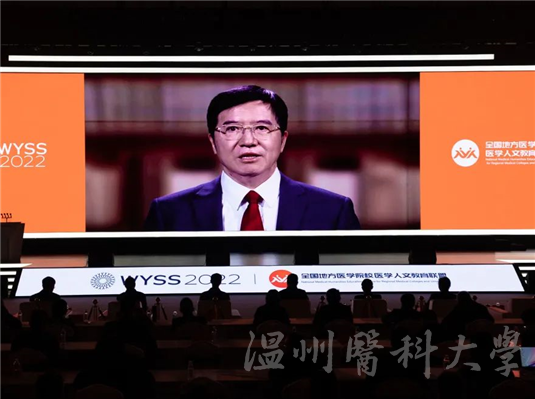
Du Yubo pointed out that the principles of putting the people and their lives above all else are indispensable for China’s modernization, and we have higher expectations of cultivating medical talents in the new era. The establishment of the Medical Humanities Education Alliance is an active response and important practice to this call. He hoped that the Alliance can grasp the direction, reform requirements, and goals of medical talent training in the new era, implement education on ideal and belief, develop relevant systems and mechanisms, improve the medical humanities education system, and contribute the wisdom and strengths of the Alliance to the progress of medical education to serve health care industry.
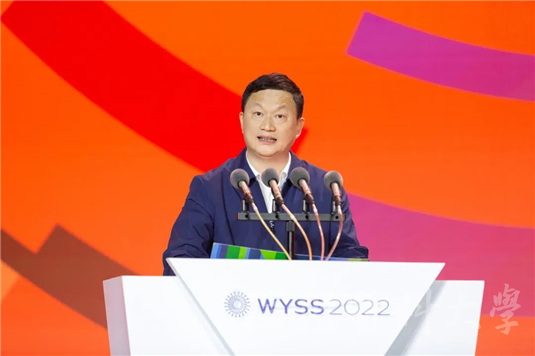
Xie Zhiyuan, on behalf of Zhejiang Association for Science and Technology, expressed warm congratulations on the establishment of the Alliance. He noted that as we are advancing the Healthy China Initiative, it is most relevant to establish the Medical Humanities Education Alliance. He urged the universities of the Alliance to do a solid job in building a community of medical humanities and comprehensively deepen the reform of medical education; accelerate the innovation and transformation of medical science and technology to protect people's lives and health; comprehensively optimize the path of medical humanities integration and cultivate outstanding medical talents in the new era.
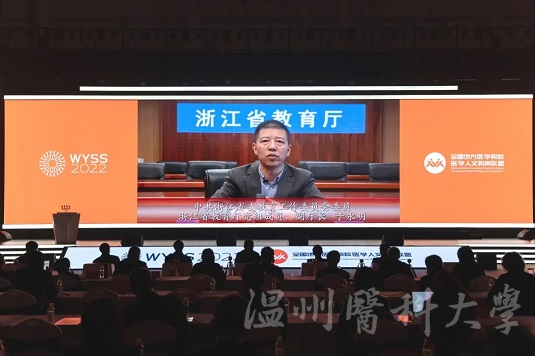
Yu Yongming pointed out that intensifying medical humanities education is an inherent component of the high-quality development of medical education and is an active response to the strategic plans for advancing the Party and the country's medical education cause in the new era. He expressed his expectations that the colleges and universities of the Alliance would advance medical education transition to meet the people's demand for healthcare, focus on the goal of developing new medicine, carry out reform of medical humanities education, and establish a well-constructed platform for medical humanities education based on the joint construction of the Alliance.
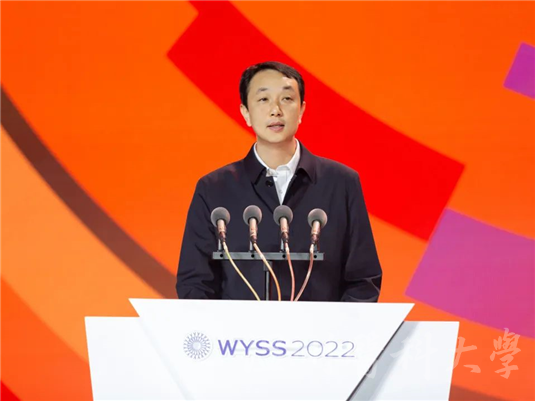
In his speech, Zhang Jian introduced the development achievements of Wenzhou's efforts to build a highland of life and health industry in the region of southern Zhejiang, northern Fujian, and eastern Jiangxi. He said that the Wenzhou Municipal Party Committee and Municipal Government will work with the Alliance to put the people first, cultivate talents for the country, serve the Healthy China Initiative, continue to carry out research in the field of healthcare, promote the transformation of medical achievements, support the training of health talents, and make Wenzhou's contributions to the development of national medical humanities education and healthcare undertakings.
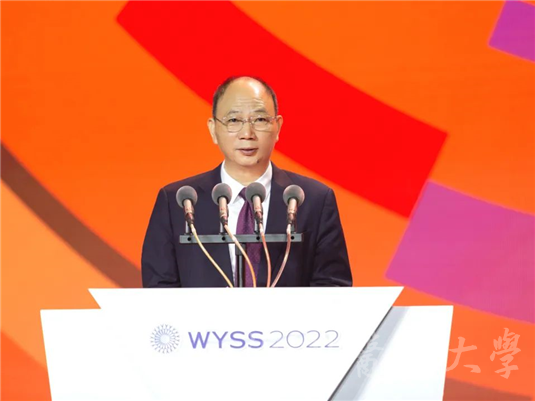
Lyu Yijun presided over the meeting.
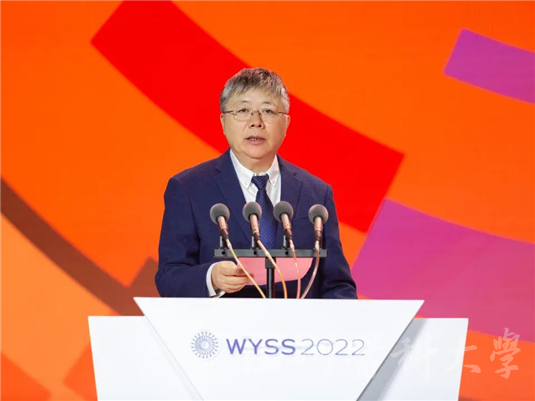
Li Xiaokun, on behalf of WMU, welcomed the participating leaders and guests. He introduced WMU’s practical exploration and a series of development achievements in medical humanities education. He said that WMU will work together with all member colleges and universities to create a medical humanities education model with the characteristics of regional medical schools, and make new and greater contributions to the strategic construction of the Healthy China Initiative and the development of new medicine education.
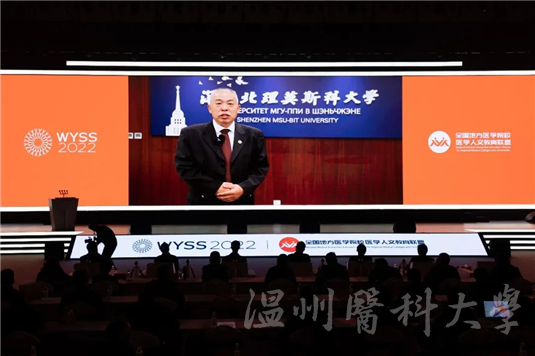
The Alliance received congratulatory letters from Professor Li Hezhang, chairman of the Chinese Association for Suzhi Education, the Chinese Association for Suzhi Education, the Health Ethics Professional Committee of the Chinese Society of Medical Ethics, and the Medical Alliance of West-Strait Zone.
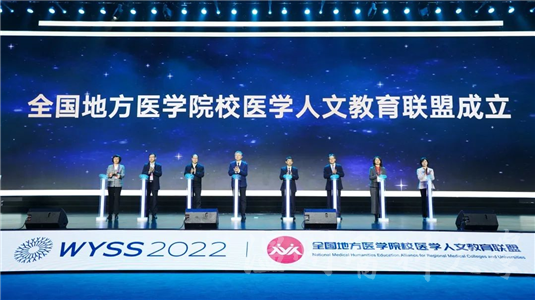
"Let humanities light up medicine, and let medicine radiate the light of humanities." In the presence of the guests, the National Medical Humanities Education Alliance for Regional Medical Colleges and Universities was officially established. The Alliance will give full play to its role as a bridge and link. Following the principles of “joint contribution, shared benefits, interconnectivity, and integration", the Alliance will have all members work together in the discipline construction, curriculum development, faculty training, talent cultivation, and social services of medical humanities education, so as to achieve more integrated, systematic and landmark results in medical humanities education, and promote the high-quality development of medical humanities education in regional medical colleges and universities.
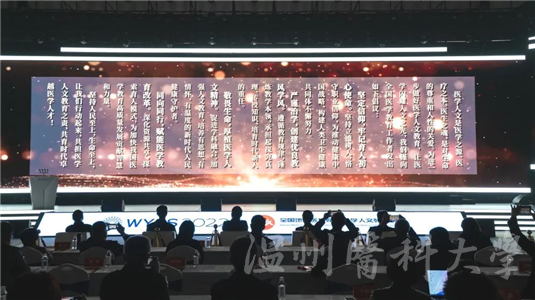
The Initiative by the National Medical Humanities Education Alliance for Regional Medical Colleges and Universities was released at the meeting. Based on the realities of deepening the reform of medical humanities, focusing on shaping and cultivating the medical humanistic spirit of medical students, the Alliance proposed that medical educators across the country "share the responsibility of medical humanities education and cultivate outstanding medical talents together."
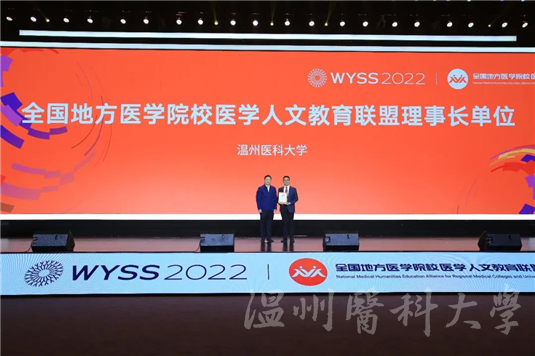
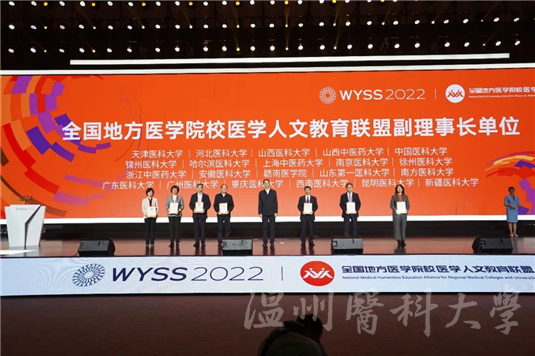
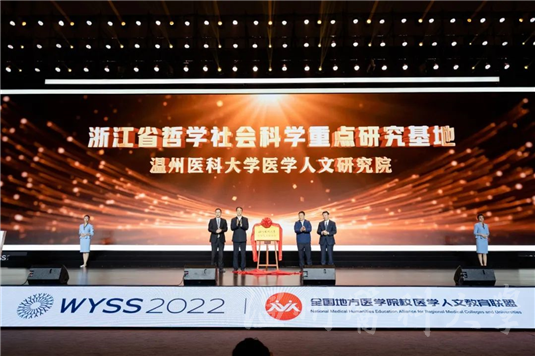
The meeting also included the appointment ceremony of the chairman and vice chairman units of the Alliance and the opening ceremony of the WMU Medical Humanities Research Institute of Zhejiang Key Research Base of Philosophy and Social Sciences.

(The WMU Lancet Choir is singing "Love in the Apricot Woods" at the opening of the meeting.)

After the inaugural meeting, the International Forum on Medicine and Humanities was held. As one of the important events of the 2022 World Young Scientist Summit, the forum invited experts to give online and offline keynote speeches on medical humanities education. Yin Xiangyang, secretary of the Party Committee of Kunming Medical University, and Huang Wenxiu, secretary of the Party Committee of Zhejiang University of Traditional Chinese Medicine, hosted the forum.

Fan Daiming, academician of the Chinese Academy of Engineering, analyzed the difficulties and challenges faced by current medicine, and explained in approachable language that integrated medicine is the right direction, a logical choice, and an intrinsic path toward medical development.
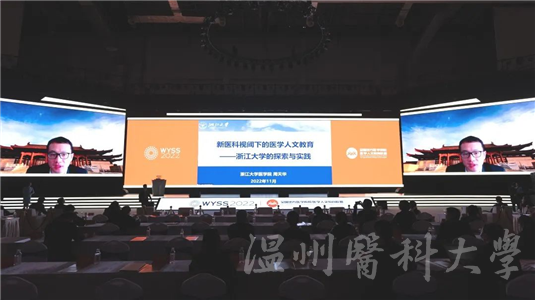
Professor Zhou Tianhua, vice president of Zhejiang University, believed that we should integrate medical humanities education into the whole process of education, build an education system with medical characteristics and affection for our country, establish a "Healthy China" comprehensive healthcare ideological and political practice platform, and continue to promote the construction of a cultural system with "life education" as the core.

Professor Duan Zhiguang, deputy director of the National Teaching Steering Committee of Medical Humanities and General Practice under the Ministry of Education, integrated the concepts of medical humanities and healthcare humanities, and put forward the new concept of "comprehensive health humanities" which is more inclusive, open, practical and up to date.
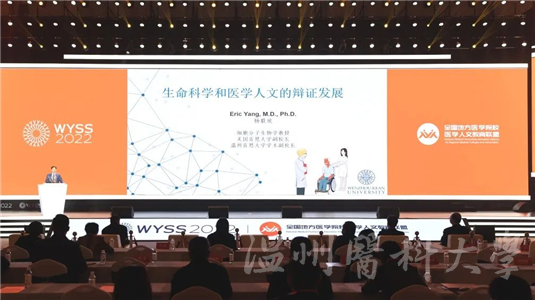
Professor Yang Yixin, vice president for academic affairs for Wenzhou-Kean University, introduced the history of medical humanities, elaborated on the dialectical development of life science and medical humanities, and proposed that life education should be the starting point for medical professional courses and humanities courses.
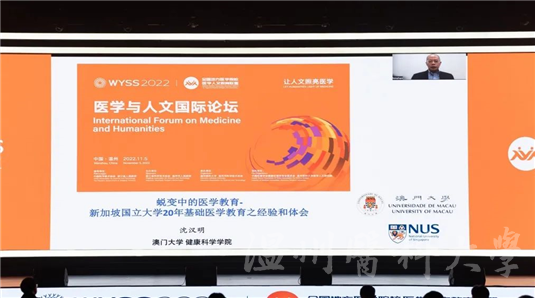
Professor Shen Hanming at the University of Macau introduced the medical education system in Singapore. With 20-year experience in basic medicine education at the National University of Singapore, he shared the university's experience of development and transformation in basic medicine education.
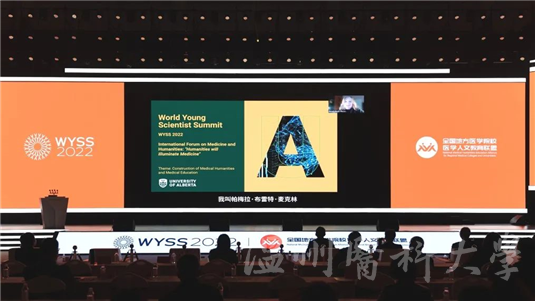
Professor Pamela Brett-MacLean at the University of Alberta, Canada, based on the development process of medical humanities in various regions of the world, combined with the practice of the University of Alberta in medical humanities education, profoundly explained the importance of humanistic spirit to medical education.

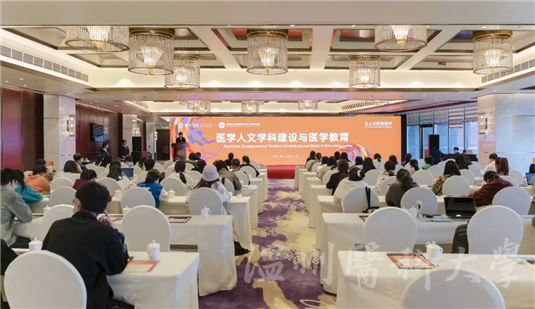
There were also two parallel forums, "Dialogue between Life Sciences and Medical Humanities" and "Discipline Construction of Medical Humanities and Medical Education". Famous experts and scholars at home and abroad were invited to communicate and exchange ideas about their research achievements on the two themes, providing new horizons and ideas for the further development of medical humanities education.
Text translated by Yu Yena and reviewed by Sun You.
